John Locke was an English philosopher and physician, widely regarded as one of the most
John Locke was an English philosopher and physician, widely regarded as one of the most influential of Enlightenment thinkers and commonly known as the "father of liberalism". Considered one of the first of the British empiricists, following the tradition of Francis Bacon, Locke is equally important to social contract theory. His work greatly affected the development of epistemology and political philosophy. His writings influenced Voltaire and Jean-Jacques Rousseau, and many Scottish Enlightenment thinkers, as well as the American Revolutionaries. His contributions to classical republicanism and liberal theory are reflected in the United States Declaration of Independence. Internationally, Locke’s political-legal principles continue to have a profound influence on the theory and practice of limited representative government and the protection of basic rights and freedoms under the rule of law.
Locke's theory of mind is often cited as the origin of modern conceptions of identity and the self, figuring prominently in the work of later philosophers such as Jean-Jacques Rousseau, David Hume, and Immanuel Kant. Locke was the first to define the self through a continuity of consciousness.
He postulated that, at birth, the mind was a blank slate, or tabula rasa. Contrary to Cartesian philosophy based on pre-existing concepts, he maintained that we are born without innate ideas, and that knowledge is instead determined only by experience derived from sense perception, a concept now known as empiricism.
Demonstrating the ideology of science in his observations, whereby something must be capable of being tested repeatedly and that nothing is exempt from being disproved, Locke stated that "whatever I write, as soon as I discover it not to be true, my hand shall be the forwardest to throw it into the fire". Such is one example of Locke's belief in empiricism.
EARLY LIFE
Locke was born on 29 August 1632, in a small thatched cottage by the church in Wrington, Somerset, about 12 miles from Bristol. He was baptised the same day, as both of his parents were Puritans. Locke's father, also called John, was an attorney who served as clerk to the Justices of the Peace in Chew Magna and as a captain of cavalry for the Parliamentarian forces during the early part of the English Civil War. His mother was Agnes Keene. Soon after Locke's birth, the family moved to the market town of Pensford, about seven miles south of Bristol, where Locke grew up in a rural Tudor house in Belluton.
In 1647, Locke was sent to the prestigious Westminster School in London under the sponsorship of Alexander Popham, a member of Parliament and John Sr.'s former commander. At the age of 16 he was at school just half a mile away from the execution of Charles I; however, the boys were not allowed to go and watch. After completing studies at Westminster, he was admitted to Christ Church, Oxford, in the autumn of 1652 at the age of 20. The dean of the college at the time was John Owen, vice-chancellor of the university. Although a capable student, Locke was irritated by the undergraduate curriculum of the time. He found the works of modern philosophers, such as René Descartes, more interesting than the classical material taught at the university. Through his friend Richard Lower, whom he knew from the Westminster School, Locke was introduced to medicine and the experimental philosophy being pursued at other universities and in the Royal Society, of which he eventually became a member.
Locke was awarded a bachelor's degree in February 1656 and a master's degree in June 1658. He obtained a bachelor of medicine in February 1675, having studied the subject extensively during his time at Oxford and, in addition to Lower, worked with such noted scientists and thinkers as Robert...
LINK TO ARTICLE: http://en.wikipedia.org/wiki/John_Locke
TAGS: John Locke, Philosophers of law, Philosophers of language, Philosophers of identity, People of the Rye House Plot, People from Wrington, People from Epping Forest District, People educated at Westminster School London, Ontologists, Metaphysicians, Founders of philosophical traditions, Fellows of the Royal Society, Fellows of Christ Church Oxford, Epistemologists, Enlightenment philosophers, English political philosophers, English Christian theologians, English Anglicans, Empiricists, Critics of atheism, British expatriates in the Dutch Republic, British classical liberals, Anglican philosophers, Alumni of Christ Church Oxford, 17th-century English writers, 17th-century English philosophers, 17th-century English medical doctors, 17th-century English male writers, John Locke
#GeneralKnowledge #AudibleWikiFactory #Audible #Wikipedia #JohnLocke
-
 1:26:10
1:26:10
The Audible Wiki Factory
1 year agoBenjamin Franklin was an American polymath who was active as a writer, scientist, inventor,
254 -
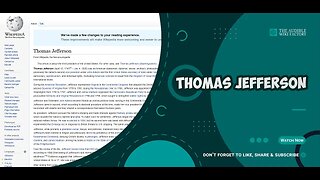 1:43:14
1:43:14
The Audible Wiki Factory
1 year agoThomas Jefferson was an American statesman, diplomat, lawyer, architect, philosopher, and
157 -
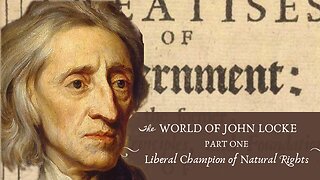 35:43
35:43
Professor Barth
1 month agoJohn Locke: Liberal Champion of Natural Rights (Locke, Pt. 1)
141 -
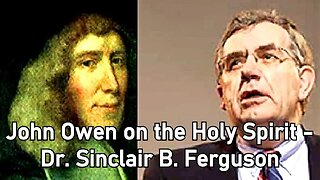 1:12:15
1:12:15
Christian Sermons and Audio Books
1 year agoJohn Owen on the Holy Spirit - Dr. Sinclair B. Ferguson
230 -
 22:02
22:02
SergeantSchultz
1 year agoThe Secret Gospel of Mark in Debate. Is it an Ancient Gospel? By Dr. Tony Burke
1.09K -
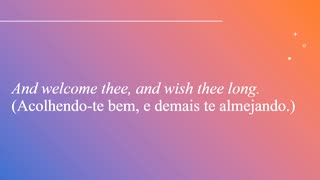 1:27
1:27
Leomont83
1 year agoRecitation of NUMBER 10 by John Milton (London, England, 1604-1674)
66 -
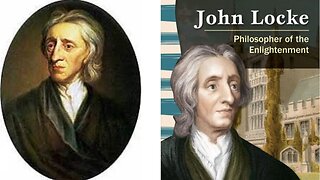 4:00
4:00
Khanphouk
9 months ago25 Famous Quotes of John Locke
4 -
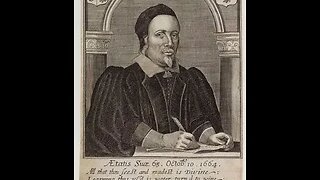 5:19
5:19
jontysdriver
10 months agolives of the fathers 1650 samuel clarke
59 -
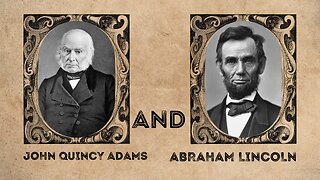 11:29
11:29
Declarations of Truth
11 months agoJohn Quincy Adams and Abraham Lincoln
1.46K -
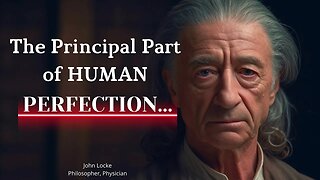 3:52
3:52
Wisdom
7 months agoWords of Freedom: John Locke's Quotes That Transform Lives.
46